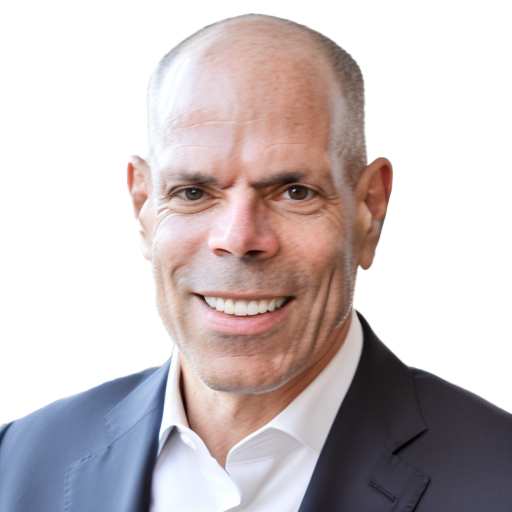
Businesses of all sizes are ripe targets for cybercriminals. Even a single malicious attack can damage your company’s reputation, halt operations, and cause significant financial losses. The most common types of preventable cyberattacks are phishing emails, ransomware, man-in-the-middle (MitM), and denial of service (DOS) attacks. A large percentage of attacks occur due to insufficient cyber security. According to a study by Forbes Magazine, only 50% of U.S. companies have a cyber security plan, and 41% of executives believe that their security practices are not adequate to protect them from an attack.
In-house security is costly and only as good as your best IT person. Cybersecurity-as-a-service can be a much better solution, offering top-tier protection by cybersecurity professionals at an affordable price. The pros and cons below can help you decide.
What is Cybersecurity-as-a-Service?
Cyber security refers to hardware, software, and security practices that protect a company from intrusion, data breaches, and losses. Cybersecurity-as-a-service is outsourcing your cyber security needs to a managed provider that uses its expertise to evaluate your needs, secure your digital assets and data, and respond to attacks.
Outsourcing your company’s cyber security is a cost-effective way to protect your network using adaptable, flexible options that continue to grow with your company as the cyber security landscape changes. When deciding on CSaaS, finding a reliable and trusted partner that you can count on for the long term is essential.
Pros and Cons of Cybersecurity-as-a-Service
Businesses rely heavily on digital data, often collecting and storing personal information from employees, customers, vendors, and partners. Any information stored on corporate networks or online with third-party vendors poses a significant risk of data breaches and identity theft. CSaaS is a viable solution to enhance a company’s cyber resilience. The pros and cons of using CSaaS are:
CSaaS Pros
Top-Tier Protection for Less
Cybersecurity-as-a-service offers you top-tier protection for less than you would pay for an in-house IT department. CSaaS includes an initial assessment, identifying exposure and risks, a customized plan specifically designed to protect your business assets, ongoing managed detection, and rapid response and recovery. Some of the services included are:
● Remote Monitoring and Management
● Firewall Integration
● Protective DNS
● Zero Trust Model
● Extended/Endpoint Detection and Response
● Security Information and Event Management
● Threat Mitigation and Response
● Backup
● Recovery
● 24/7 Support
Cost-Effective/Easy-to-Use Solutions
Anyone on staff can use CSaaS without installing complex software, adding new hardware, or hiring new people. CSaaS is a good option for companies with fixed budgets that need top-level protection at an affordable price and many providers offer training and support.
Data Protection/Breach Prevention
Many businesses don’t have the human resources for 24/7 cyber security protection. With a CSaaS solution, you get around-the-clock threat detection monitoring to prevent data breaches and keep your company, customer, and employee data safe.
Compliance
Some companies are subject to state, local, or federal data security laws. CSaaS can help your business stay compliant by protecting your data 24/7 comprehensively using a practical cybersecurity assessment combined with threat detection and a rapid response plan.
Quick and Easy to Deploy
Outsourcing your cyber security operations to a trusted partner is quick and easy. You don’t have to worry about a complicated onboarding process or installing anything new. You can be up and running and fully protected within a few days, not months.
Rapid Response
To prevent financial, operational, and reputational damage after an intrusion, you must detect cybersecurity threats quickly and respond. Cyberleaf’s automated tools continuously monitor systems to reduce threat detection and response time from months to minutes. The faster you detect and mitigate a problem, the less damage it can cause. Timing is critical.
Adaptable/Flexible/Scalable
CSaaS allows you to stay on top of the ever-evolving threat landscape. It’s adaptable, flexible, and scalable, and as your business grows, so does your cybersecurity plan. You do not want to pigeonhole yourself into a solution you may outgrow within a few years.
Cyber Resilience with a Trusted Partner
When trusting something as valuable as your cyber security to a partner, they must have a reputation for reliability, extensive experience, and expertise in dealing with cybersecurity threats.
CSaaS Cons
Initial and Ongoing Costs.
Most things come with some initial and ongoing expenses. However, over the long term, CSaaS is less expensive than hiring a team of IT experts and paying for 24/7 coverage. Find a provider that offers top-tier protection for an affordable monthly rate. You cannot put a price on data protection and intrusion prevention.
Reduced Control
Many people think that outsourcing cyber security means losing control, but with CSaaS, your staff has complete control over the tools and monitoring and has access to ongoing training and 24/7 support. Plus, outsourcing takes the responsibility to get it right off you. Cyberleaf employs top-notch security professionals who do this every day.
Industry-Specific Limitations
If you have industry-specific limitations or your business is highly unique, CSaaS may not be a good fit. However, most companies can benefit from outsourcing and relying on experts to keep their digital assets safe.
What to Look for in a Cybersecurity Company
Finding the right cybersecurity partner is critical. Choose a tech agnostic company (meaning they don’t require any specific hardware or software) who can handle your current setup without any expensive changes, who is also flexible and adaptable enough to create a customized security plan for your business.
Some things to look for in a cybersecurity company are:
● Reliability
● Seamless Transition
● Cost-Effective Solution with No Additional Investment
● Quick and Easy to Deploy and Use
● Top-Tier Affordable Cybersecurity for Everyone
● Tech Agnostic
● Data Breach Monitoring, Protection, and Rapid Response
Any company can benefit from cybersecurity-as-a-service to strengthen their risk assessment, enhance their security practices, and shorten their response time and recovery from online threats. If you want to learn more about how to create a cyber security plan for your business, contact us today!





